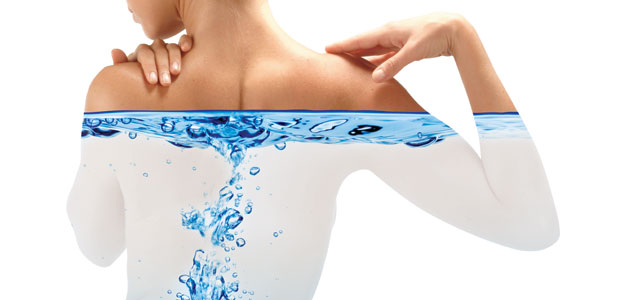Advertisement
You’re Not Sick, You’re Thirsty
Drink Up!

The human body can survive for five weeks without food, but only five days without water. This elixir of life is involved in every aspect of body function, from digestion to excretion. Water also helps maintain normal body temperature and aid in the absorption of vital nutrients.
Without water, we experience chronic mild to moderate dehydration. I contend that dehydration is the root cause of several health conditions, including faulty digestion, fatigue, inability to lose weight, achy joints, and dry skin. Increase your water intake to easily improve these conditions.
I believe that many of us are so accustomed to a chronic state of dehydration that we no longer experience the urge to drink. Regular water consumption feels like a chore. As a general rule, though, if you no longer feel thirsty, it is definitely time to drink! Once you begin to drink water on a daily basis, you will find your thirst sensation is quickly restored and drinking water will become routine.
The Eight-and-Eight Rule
Most people go by the eight-and-eight rule to determine how much water to consume daily. In other words, drink eight 8-oz glasses (1.8 L) of water every day. Active people may need to drink more H2O.
An accurate calculation of how much water you need to drink can be determined using your body weight. Calculate how much water you should drink daily by dividing your weight in pounds by two. The resulting number is the ounces of water you need to consume daily. For example, if you weigh 150 lbs (68 kg), optimally you should drink 75 oz (2.2 L) of water daily.
Watch the Water if You have Edema
Be aware that drinking too much water can be dangerous in some medical conditions. Individuals with heart disease, high blood pressure, edema (swelling of the legs), and kidney problems should talk to their doctors before increasing their water intake.
I am a firm believer that a significant amount of the health complaints we are witnessing today are intimately linked with chronic dehydration. To make sure you have healthy hydration, includewater-laden foods and beverages in your daily diet.
Alternate Water Sources
If you would rather drink anything but water, here are other ways to stay hydrated:
- Eat water-filled foods such as melons, celery, bok choy, and soup broths. Watermelon is 92 percent water.
- Squeeze fresh lemon or lime juice into your water to enhance the taste. Keep a container of sliced lemon and lime wedges in your fridge and pop one into each glass of water you drink.
- Watch your intake of dehydrating beverages such as coffee and black tea. For every cup of coffee or tea you drink, drink an extra glass of water.
- Opt for herbal teas during the winter. From strawberry and peach to mint and white tea, these delicious options will keep you warm.
- Consider investing in a home water-purifying system. The more available water is to you, the more you will drink it.
Why the Elderly Need More Water
More than one in three older adults may not drink enough water and are at risk for dehydration, according to results from the US National Health and Nutrition Examination Survey. Causes are loss of thirst sensation with age and diminished kidney function. The elderly also have lower levels of water in the body. That’s because water usually makes up 65 to 75 percent of muscle weight, but as muscle mass atrophies with age and underuse, levels of body water drop. To avoid dehydration, include herbal teas, water with lemon, and hydrating foods in your daily diet and limit intake of salt, coffee, and pop.




